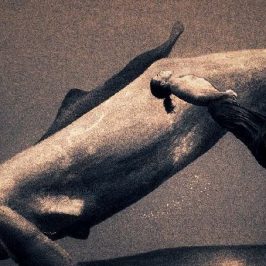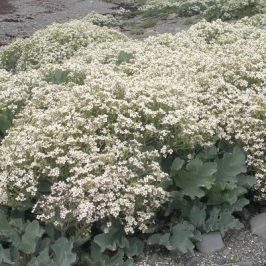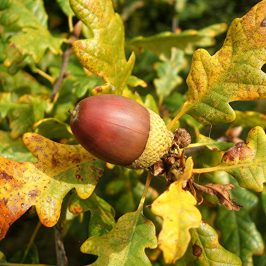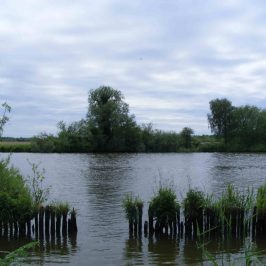This is the second of a three-part conversation with writer & thinker-maker, Tony Dias, where we delve further into some of the issues that opened up in the first conversation. We share this conversation here in the spirit of gift and as a way of widening the dialogue. Feel free to step in.
JDG: It seems like a lot has happened since our last conversation. Last time we talked you had experienced a pause in your writing. Since then you’ve had a lot of output, a lot of new ideas!
TD: I’ve had a sense of breakthrough. Just yesterday it appeared this way, I wouldn’t be here if it weren’t for everything, everything that has ever happened. All the difficulties I’ve faced as well as the rest. This presents our vulnerability in a different light. The web of our vulnerability extends to everything. And, without our vulnerability, we would not exist. This hints at a center that has nothing to do with optimistic outcomes. It is not pessimism either. I feel present more often, as opposed to yearning to be present. This is somehow also connected to writing.
What is coming to the surface more and more clearly is that the way forward isn’t to be found by looking for choices. Whenever we begin to think beyond the present, once we consider choices, we are merely talking about how we might proceed. We are guessing at how things might work out. There is a direct connection between being present and not getting caught up in choosing. The whole notion of having choices to make and making choices sets up the conditions for conflict. It posits an ‘I’ opposed to a ‘them’. All this touches on how we feel compelled to choose when the effective thing to do is to suspend choice, to do.
JDG: This ties in with our last conversation, as well as some of the things that you have written since then. I’m thinking of a point you make in a recent post about resisting making sense. This ties in with not feeling compelled to choose. Connecting this back to our previous conversation, what does this actually require? How do we resist making sense? How can we let go of this compulsive urge? How do we get there?
I am thinking of my own situation, and also, of the story of how you came to Dark Mountain; your initial isolation, searching, and then, discovering sign-posts and finding a community. Paul Kingsnorth says Dark Mountain, in some incarnations, is almost a therapy group. That once you get through the despair and the loneliness you start building new meanings. You come to a place without despair. Andrew Taggart writes of how we begin to lead a flourishing life. We create new meanings together. It seems, that to get to this place, we need to stop making sense, in the way that you talk about it, because that urge still springs from a ‘single logic’. This is something we need to move beyond, as we discussed last time.
One sentence from your post struck me: “Welcoming the loss of an urgency to make sense”. I really like that. Could you say something about how this has worked for you? How did you arrive there?
TD: Years ago, driving in a snow storm, I had this experience. It has stuck with me. It may be the best answer I can give you.
I was living in New York State, heading home on a winter’s evening, driving on a narrow country road. I was going too fast. The road covered with heavy snow falling thickly. As I topped the crest of a hill, looking down a long slope I could see a van had spun-out of control and come to rest across the middle of the road. Figures caught in my headlights stood all around it.
This I found. It was what was there confronting me. There was no time, or space, to stop.
I had this overwhelming realisation, “I have no control”. I was flooded with an awareness of this. It did not strike me as we expect, as pessimism leading to surrender. There was a heightened sense of reality, “I am here!” This sense of being, of being alive, settled me.
There was no room for bargaining or urgency. My perception slowed time. All I could do was take each step as it came without the luxury of speculating over whether “some plan” might work or not.
The situation unfolded. It emerged step by step. I had long trained myself while driving to look for the hole not at the obstruction. My eyes, and my hands on the wheel, found just enough room to shift to the left. As you know, we drive on the right here. There was just enough room to pass the van and its swarm of bystanders with inches to spare. Just beyond, at the bottom of the slope, the road made a sharp turn to the left. This should have been impossible to manage with the road snow-covered and slick.
The highway department had recently added another layer of asphalt to the road. This left a pronounced lip-edge to the pavement. I eased the left wheels over this rim. The car rode around the corner as if on rails! Coming out of the turn, the car’s angular momentum sent it into a 360º spin just as we crossed a narrow bridge. I found myself steering, first over my right shoulder, then looking back, then peering over my left shoulder, finally looking straight ahead again! By then, the car had slowed enough to continue the rest of the way home without further incident.
I was filled with Joy, overcome by a sense of having experienced a tremendous act of Grace.
‘I’ had not made this happen! I was simply present, acting without urgency, without preconception. This was action without trying. I had no control over events. There was no ‘pilot to the pilot’.
We stop making sense when we are somehow hit over the head by the fact that we cannot make sense. We cannot make it. We can be part of it, but only if we stop trying to make things happen. In this case ‘intention’ was no more than a turn of the eyes towards the unobstructed spot. There was no illusion of will controlling events. No illusion of any security beyond continuing to be present.
This requires accepting that we are overwhelmed. When this occurs without actually destroying us in the process we have been given a great lesson.
This is a form of initiation. Many cultures have channeled challenging experiences into rituals that initiate us into these mysteries. These have become, more or less, repeatable experiences down the generations. We don’t have this today. We haven’t for a long, long, time. There are many false initiations today that pervert the meaning of the term. Many are damaged by these, whether hazings or boot camp; either institutionalised manipulation or the a result of some fad chasing after our hunger for such experiences.
Initiation, as it was practiced before, is how we learn to be. We enter these events as innocents, with our customary assumptions of intention and expectation. We are overwhelmed by circumstances in a way that challenges us profoundly without destroying us. We realise we are immersed in experiencing life directly. We realise we have no independent existence outside of this totality.
When I let go of all intentions and expectations I act as part of everything around me. Another important thing about this little story is that it was wonderful for me that I survived! I was able to learn from it. And, it has taken many years for it to sink in, to discover what it meant.
It’s funny, but with this perspective we begin to lose the need to feel that we must survive.
I’ve been writing about security, the illusion of security. When we stop demanding this bargain; that we can somehow hedge our bets; this belief that putting our money on ‘X’ is somehow going to win our security…. One of our most persistent illusions is this sense that by doing good work we are ‘saving’ something. Whether our selves or some ‘us’, or ‘the world’.
This only props up our illusion that there is an ‘I’ to save. That there is some ‘other’ ‘out there’. When we let go of this we participate. We break a stumbling block intent on short-circuiting us back into a belief in Ego.
JDG: You write about this in terms of language as well: language can both open doors and be a stumbling block. And, I guess, learning to flourish is to learn how to deal with language. Perhaps there’s a ‘Craft’ to language, as you speak of it. Would you say that ‘Craft’ is an approach, or an attitude?
TD: An attitude. I’ve begun to see Technology and Craft as containers I’ve been hoping to fill and looking at ways to relate them to each other. Remember that by Craft I don’t mean any specific way in which the term has been used before. It’s not ‘Arts and Crafts’. It’s not about any particular tradition of Craft.
I’m looking for a global way of thinking about it. Making an important distinction between this horrible assumption we take for granted that whatever we make is ‘Technology’. That the term Technology describes every way in which humans interact with our surroundings. That all we do is reducible to Technology.
What distinguishes our technological attitude is that it is a series of recipes, repeatable recipes. The carrying out of repeatable actions does not encompass all our interactions with our surroundings. This assumption is one of the most effective blinders we wear. We have this insistence that it has always been this way and cannot be any other. I see this everywhere. Along with a blindness to its alternatives.
Yes, Craft is an attitude.
I’ve delineated Art and Craft in this way:
Art engages directly with questions of meaning.
Craft is a conversation between meaning and contingency.
It is important to be as clear as possible about this. Our interactions, our physical interactions, with the world come about through this process. Not solely via this numbskull idea that we can just amass recipes and then disseminate them so that when we have an itch we scratch it by grabbing a recipe.
JDG: If Craft is an attitude and Technology is following recipes… language is how we write these recipes?
TD: Yes, language is another tool. I have interacted with tools within Craft and Technology. There are major differences between hand tools as used in wood working or in designing boats vs. using computers for instance. They are all tools, but there are significant differences between them and how we approach their use.
Within Craft we encounter the necessity that we must not simply allow our tools to dictate what we do. If I have a hammer everything begins to look like a nail. We learn to resist this. We learn to value this resistance.
Within the attitude of Technology there is a rush to accept the limitations of our tools as our own limitations. We accept them as our horizon. Our world is limited to what these tools will allow us to do, to what is easy for the tool. We accommodate to this and call it efficiency.
Language can work in this way. Whether we let it or not relates to our understanding of ease and resistance. If we look at resistance as a consistent negative and ease as always positive, then, obviously, we are going to rush to Technology, rush to glib language. If we turn this around, we run away from all that! When writing, in the experience I want to get across to a reader, I want to slow everything down. I want us to stop and look under every rock, to stumble here, to confront questions, and not always rush to jump ahead racing after conclusions. I see this, as we discussed last time, as a holographic approach. I’m using it here to respond to your question. This approach implies that the forms we use are an example of what they contain.
Both as a writer, and as a reader, we can participate in a practice of disabusing ourselves of this notion that ease is what we should always strive for and that resistance should always be avoided. This is the trap of efficiency. The speed and ease with which a process can be accomplished is taken as more significant than whether another, slower, more resistant process might actually give us something worth having. We see this in everything from Fast Food to Speed Dating!
JDG: I’ve been thinking about this in relation to our last conversation. We talked about the problems we have with labels, how language, our tool, becomes a stumbling block in itself. You mentioned how valuable signposts can devolve into empty labels. That there are inherent dangers in labels like ‘movement’.
When we think about Dark Mountain as a movement, when we attach a label to it, we think of it as a place, or we think of it as a banner. Perhaps we can say, terms like ‘uncivilisation’ are in danger of becoming a category rather than a process. Something static rather than dynamic and changing.
Maybe this is a similar dilemma to the one exposed by Craft and Technology. If we don’t get hung up on labels, we remain open to learning. We begin to see the processual aspect of how we adopt an attitude and practice it. It seems important that we shift our perspective away from names and engage more with the processes and learn how to become good at this.
And then, of course, we use other linguistic labels, perhaps it is dissensus. Maybe Craft, in this conversation, maybe improvisation in another conversation. We need to remember these are processual terms, verbs really. This is how we come to learn to ‘value the resistance to our will’ without shying away. This is how we engage.
TD: This is a really important question. It’s a very broad question. It covers another stumbling block we don’t often recognise. Let’s look at the broader question beneath this notion of Dark Mountain, or of any other label.
When we recognise our vulnerability. When we stop looking at resistance against us as always bad for us, we stop seeing the world in terms of scarcity. We stop trying to grab hold of things, to hold onto them. We give up expecting and demanding that we must be saved. We stop clutching. There’s a piece I wrote about drowning, or swimming versus drowning. A drowning person desperately wants to claw their way out of the water. They insist,
“I don’t want to be here!”
“I refuse to accept this is where I am!” Of course, this doesn’t work.
When we’re swimming, when we are within an abundance and we recognise abundance as just what-is. When we recognise our perception as a barrier to our meeting the situation; then, what we had been clutching after falls into place – for good or ill. We recognise these are not things to be held onto. This doesn’t mean we ignore them, or reject them. There is simply no thing we must hold onto. Our relationship to things changes.
To jump from there, from this very general point to the specific, when my journey in relation to something called Dark Mountain began I was flailing. I felt a great scarcity. Dark Mountain caught my eye. I lunged for it. It buoyed me up, provided me with a critical moment of transition that gave me time and space to breathe, to get a little bit further along in my own journey.
Then there was a phase where I began to question, “What’s wrong with this thing I’ve grabbed? Why isn’t it holding me up? Why isn’t this enough?” Casting around for reasons, looking for “What’s wrong with it?”
What I realise now, to bring this full circle, is that, as with any other thing we might come across along our path while striving to make a transition from out of desperation, grasping, reaching towards becoming; this is a point along a path. A point that opens up certain connections. Some prosper, others wither away. Some lie fallow. What I take from this to carry me forward is, and this isn’t to single out Dark Mountain over any other idea, is that we need to move on, to let go of ideas, every idea.
Years ago it dawned on me that the twentieth century was a lesson. It beat the crap out of us to show us that ideology will only kill us. Mining thought and compacting it together, then holding it up and worshipping it will kill us.
From there, we can continue to work with ideas, to work with thought. As we think, as we experience, we accumulate thoughts and past experiences. But our relationship to these has to develop. The best way to characterise this development is to move away from this sense that ideas are scarce, or that we need to grab unto things to save us. We need to realise that we are immersed in abundance. That, by treading lightly, we may see apparent chaos and complication as flow, as a dynamic. When we do, things stop being surprising or confusing. When we look at a turbulent stream from the bank it is not surprising. If we are thrown into a rapid, our response might be, “This is chaos!” When we understand the stream we realise, “It’s not chaos!” It is a form of order which happens to be hitting me at a speed and in a way which is dazzling to me and, perhaps, beyond my strength to deal with at this time. But it is not chaos. It has a form of order, a dynamic order.
JDG: That nicely captures the point I was trying to make about process.
TD: What I continue to resist in myself and in others is making a jump from a moment of shared insight to the institution of a new label. We have this tick. I think it is just a habit. This is not the only way we can deal with things but it is a deeply ingrained habit. This is, again, related to our discomfort with resistance. We lunge after any opportunity to rest in the comfort of labels.
JDG: This relates to my situation as a researcher in an institution which, essentially, asks me to label everything!
TD: Yes. Here’s another way to look at it. If, and I think that this applies to everything we do, if we can recognise the holographic nature of reality. If we recognise the rhymes and unity of events apparent at every scale, the way, as in a signature, each part is both a part and carries the meaning of the whole within it intrinsically; we act holographically. We are true to the universe in a fundamental way. Every challenge we face in making art or writing, or designing, or anything else; is a challenge to be holographic. If you think about what you do in this way – And this is not the same as negotiation, coming to compromises, dealing within power structures, finding a place within a hierarchy….
It is distinct from all this.
Don’t choose!
This statement is another side of it. When we don’t choose, we are holographic. When we choose, we are not holographic. Does this make sense?
JDG: You see, I’m trying to apply this to the next eighteen months of my life!
TD: Yes, but we can’t do it that way! We do it moment by moment! All we can do is to enquire into our own situation. “What is in front of me now?” “How can I respond to it as it comes?”
This is why, I’m always talking about my situation. But I do feel that my situation, ultimately, there is nothing unique about it. What I am doing is looking for ways for us to recognise how our situations are not distinct, but how they are really all one situation.
What got me started within my writing began as a realisation that I had let go of trying to make sense. When I began writing fiction I realised I had absolutely no idea three words ahead what was coming next. It was just coming through.
As soon as we begin to consider being present our inclination is to ask “How am I going to be present eighteen months from now?” When we do this we’ve dropped the ball.
This returns us to the organism, realising there is not an ‘I’ here, but an organism bound by a skin – Remember there’s as much stuff that isn’t ‘me’ within this space I occupy as there is ‘me’. If we count the cells of microorganisms sharing this bag of skin. It’s close to a tie. But, our organism is bounded in significant ways.
Letting go of the illusion that there is an Ego driving what we do, it becomes clear that what there is, is an organism. It has a deep history, evolution. Throughout evolution what led to this organism and what keeps it functioning, has accumulated something, an intelligence we can learn to trust. The more we trust it, the more we listen to our organism, and the more we relate to it with compassion and respect. The more we do this, the more it speaks to us. The more we and our organisms communicate, the more we converse with all of the other organisms around us.
We could say “He’s going into an animistic fugue here!”, but that’s not it. It is witnessing and experiencing the fact that everything can and does speak to us. The stones speak to us, and the animals. When we’re communicating with each other in this way there is something transmitted beyond the words we use. Connections are made across other fields beyond the five commonly recognised senses.
We can look at this in relation to our attitude towards resistance and ease. This is another case where Ego presents an attitude of great distrust. Just remember that Ego doesn’t care whether our organism lives or dies as long as our attention remains focused on it. This is all that gives it any existence. Ego is like a pathogen in this respect. It doesn’t care whether we, its hosts, live or die.
When we find a way out from under these illusions our taste for trust, and our ability to experience compassion in all directions, grows. Our organisms have this capacity. If they didn’t we wouldn’t have survived this long.
JDG: This makes me think of something I’ve been speaking to other people about lately. How do we come to this conversation? How do we find each other? There are different words for it and we mentioned synchronicity in our last conversation. But it seems that trusting our organism, and letting go, and not controlling….
Is there something beyond the senses that draws us together in some way?
TD: Yes, I think so. God, Oneness. It is one of our most fraught concepts. Our history of labeling has built up so many impediments around it. We need to confront Oneness at the edge of total inarticulateness. Our awe and respect for its mystery is the only way to drop all the bullshit spouted in its name.
Another way of looking at this question of ease and resistance is to realise that to reach the heart of something is to encompass it. The more alive to it we are. The more aware we are of how our organism is tuned into it. This awareness gives us direction. It is a compass. One we can trust. This overrides all the old misdirections.
Are you familiar with ‘The Riddle of the Sands’ by Erskine Childers? He was an Englishman who played an important part in the Irish revolution. And, he was tragically executed by the Irish. This book is one of the first spy novels. It’s a great sailing story. The action takes place in the Frisian Islands and in the Baltic. A key part of this story is when our hero, for one moment, takes a pilot. He takes someone else’s direction and this almost spells his doom. I won’t get into it in more detail but it just popped into my head because this is exactly the point.
I hadn’t thought of it in this way before, but this is exactly what he’s talking about. When we resort to labels we take on a pilot. We already have a perfectly good compass! We have an organism that knows how to be. Why should we be looking for pilots all the time? People with their own agendas telling us where to look and where to go and what to do.
JDG: If I may bring this back to an earlier point. If we work with Craft and have an attitude of improvisation, working within the non-repeatable. If we think about innovation from this vantage point, how can we talk about innovation as an attitude of Craft or improvisation? Good innovation, if that is what we are interested in, is not just about materials. It is also conceptual. It works within the realm of concepts, ideas, and attitudes without settling for recipes or solutions. The vast majority of the innovation literature seems to be about solutions, most often material solutions. And I am supposed to contribute to this field! How do you see this?
TD: Innovation, as it is believed to be today, is a term firmly trapped within the religion of Technology. It is completely off the mark, as are all aspects of a technological attitude.
The current concept of innovation is trapped within an attitude that insists we need to be saved. This is what makes it a Religion, an ‘ism’. Technologism. Its whole point is to find salvation. Instead of whipping ourselves in penance for sins, getting bloody, climbing the stairs on our knees as we recite prayers; we will innovate our way out of our problems.
This is the cutting edge of our danger zone, this sinkhole of attention, innovation. This is where all of our mania for futurism fits in. It’s a suck-hole for our attention. All it does is keep us within a realm which satisfies Ego. You have a tremendous challenge!
The short answer is courage, I suppose. This opens up the question of conflict. Conflict remains a question. There is no answer to conflict. The closest we have to an answer is the realisation there is no answer to it. There is no pre-determined solution. But also, we need to understand that when Truth comes up against Hierarchy, Hierarchy most often wins because it’s the one committed to conflict.
It’s from a realisation of this that I come up with saying things to you like “don’t choose”. Do you see what I mean?
There is no way to resolve this conflict you face. You can’t be Galileo and have the Pope love you! It just doesn’t happen. But this doesn’t mean you line yourself up for the scaffold either and climb it willfully. There is no answer to how you should deal with conflict but what makes you strong when you’re faced with power, and I use these words in this way specifically, what gives you strength to deal with power is first off welcoming the resistance power provides you. This puts another inflection on what we were talking about!
Our immediate expectation is, “If a hierarchy is resisting me this is a bad thing. I have to find a way around it!” What if we look at it another way?
I recently had a situation where I thought, for a brief moment, almost a day, that an incredible opportunity was opening up. I was going to have a free hand for the next five years. Then it went away. It had been a mirage. But my reaction after the immediate disappointment was relief. It was out of this experience that these meditations on resistance came to me.
I always thought I was making things hard for myself because I didn’t want to succeed or something. I went through this for decades. What is becoming clear is I didn’t want to lose the value of resistance. Even now, my instinct, if asked in a millisecond to choose, I will choose ease. We all do! But the fact is that resistance is not a bad thing.
This can easily fall into triteness, but you do see what I mean? I don’t want this to degenerate into a sports pep talk.
JDG: No, I don’t take it like that. Preemptively, I want to say thank you. This is a conversation that I haven’t had before and it’s one that I’ve needed to have for a long time. It’s very welcome.
TD: Good, I mean this is a conversation I wish I’d had before. This is an aspect of the joy of being present in this. There is such abundance available to us as opposed to putting on blinkers and striving in such a way that all we see is what we don’t have. I’ve striven after finding this conversation for fifty years! Since I was nine or ten years old. All of a sudden, here it is! But did striving get me here? No.
We’re encumbered. We’re encumbered with habits. Even as we experience insights that take us beyond our habits, we wiggle around. We’re caught within their residue. This connects again with the organism. Also, this connects with the fact that so few of the people involved in these sorts of discussions have any actual Craft experience. They’re intellectuals, writers and thinkers who have never confronted making a physical thing.
This relates to your question about innovation. Let’s go back to Art and Craft. Art is useless. That’s the resistance within art. It is useless. We have to give up urgency to practice it. We have to throw ourselves against its resistance. What we are doing making Art is useless. This is a tremendous resistance when you think about it. What it gives us in return is a way to deal with meaning directly.
In Craft we are dealing with contingency. Our organisms are immersed within our perceptions of the world. We want to carry over insights about meaning that we find within the crucible of Art. We want to confront contingency within the context of meaning. To do this within Craft, we must deal with questions of utility and discovering what will be effective. This occurs on a direct, physical level. There’s no point in a great idea by itself, it won’t get anything done.
This is true in Art also. I’ve found this most directly in painting. No idea will make a painting. Within Craft we focus our attention on our interactions with the physical world. There is a series of habits that we hone, develop, and then maintain. There are other habits we need to wean ourselves away from. This occurs as part of an initiation. A movement from innocence to participation.
If we are to embrace Craft as an attitude… Remember, Technology says,
“Don’t worry your pretty little head over that! I’ll make it happen.”
“Go off and live in whatever fantasy your mind invents.”
“I’ll make things happen in the physical world. But I’ll own you, sucker!”
We accept this. But when it all disappears, as it is bound to, to a great extent, if we have no other way to interact with the real world outside of our religion of Technology, we’re dead!
Craft is not concerned with choice. We can choose to be artists or not. Although I think we all need to be attuned to Art in some way for questions of meaning to make sense to us. But we can’t choose concerning Craft. This is clear. Without Craft we have no way of managing and meeting needs.
We need access to some avenue of Craft, some form we can be immersed in. Otherwise we cannot understand Craft. In this way we can speak the same language. We can be immersed in a shared reality with those involved in other Crafts. We don’t have to know every Craft. But, unless we are immersed in some form of Craft, we cannot survive. Look at a mouse. Look at a tiger, an amoeba. Each is immersed in their Craft, their connection with the physical world.
We need to reestablish this for ourselves. The overreach of cheap energy has allowed us to assume we could wean ourselves from the stipulations of reality. We are discovering that they are not negotiable. Inherent in this discovery is the futility of choice. Nothing that matters comes down to choices. Suspending choice as an option allows us to discover how we may interact with necessity.







Paul Kingsnorth
Fascinating conversation: thanks to both of you.
Yes to the idea of avoiding rigidity, or of creating institutions that then need to be defended. A lot of people seem to relate to DM as Tony has done: somewhere to come to, take from, give to and then move on from. I think that’s a nice way to see it, and a useful purpose for it to have.